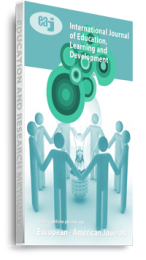Higher education is a much desirable level of education for most youths in the society. The fact that a person is with special needs does not alienate such a person from being able to access higher education. Like all fundamental human rights persons with special needs must have access to higher education as stipulated in the United Nations Convention on Rights of persons with disabilities. This paper takes a closer look into the barriers that have being experienced and encountered by persons with special needs in accessing higher education. Three research questions were generated for the study. The research design for this study is descriptive survey. Two hundred and seventy three (273) students with special needs responded to the forty item questionnaire designed for the study. Descriptive and inferential statistics of ANOVA and Correlation (PPMC) were used to test the study at 0.05 level of significance. The analysis of data revealed that social and environmental factors affect the access to higher education by students with special needs. A number of other barriers that also contributed to lack of access to higher education by persons with special needs include academic, communication, instructional or institutional, individual and financial barriers. The government and other stakeholders have to intensify supports for persons with special needs to ensure easier access to higher education and to eradicate limitation to certain courses for persons with special needs. Disability policies should be enacted in tertiary institutions in Nigeria in order to eliminate barriers to access to higher education by persons with special needs.
Keywords: Higher Institutions, Special Needs

